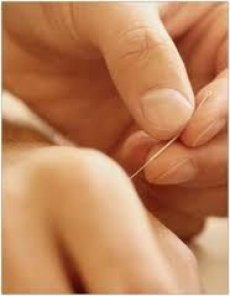Medical expert of the article
New publications
Slimming injections - a new method against obesity
Last reviewed: 01.07.2025

All iLive content is medically reviewed or fact checked to ensure as much factual accuracy as possible.
We have strict sourcing guidelines and only link to reputable media sites, academic research institutions and, whenever possible, medically peer reviewed studies. Note that the numbers in parentheses ([1], [2], etc.) are clickable links to these studies.
If you feel that any of our content is inaccurate, out-of-date, or otherwise questionable, please select it and press Ctrl + Enter.

British scientists have found a new way to get into perfect shape without diets and exhausting physical exercise. All you need to do is take a course of not very pleasant but environmentally friendly injections. If successful, you can forget about the fears of losing your job, becoming stupid or dying in pursuit of slimness. Researchers from Imperial College conducted a four-week trial, during which they injected people with oxyntomodulin, a hormone found in the human intestine. It is usually released in the small intestine when eating food and signals the brain when enough has been eaten.
By artificially increasing its amount with injections, doctors tried to discover a new way to lose weight. Of the twenty-six fat people selected for the experiment, fourteen were injected with the hormone three times a day half an hour before meals. The remaining twelve received injections of a saline solution with the same frequency, which removes fluid from the body. Neither the doctors nor the patients knew who was receiving what injections.
As a result, fourteen lucky people lost an average of 2.3 kilograms in four weeks, while the rest lost only half a kilo. Those receiving oxyntomodulin felt a significant decrease in appetite, but did not experience any decrease in pleasure from eating their favorite foods. And their level of leptin, a protein that regulates the body's energy expenditure and the number of fat cells in the body, was also lower.
The results of the experiment pleased both its participants and doctors. But doctors believe that additional research will be needed. "Every time you have breakfast or dinner, you secrete your own oxyntomodulin, so it is not a drug, it is safe and will never cause addiction in the body," says Professor Steve Bloom. According to specialists, during the experiment, patients lost weight significantly. Now it is necessary to study what effect an increase in oxyntomodulin will have over a longer period of time and in combination with a change in a sedentary lifestyle.


 [
[